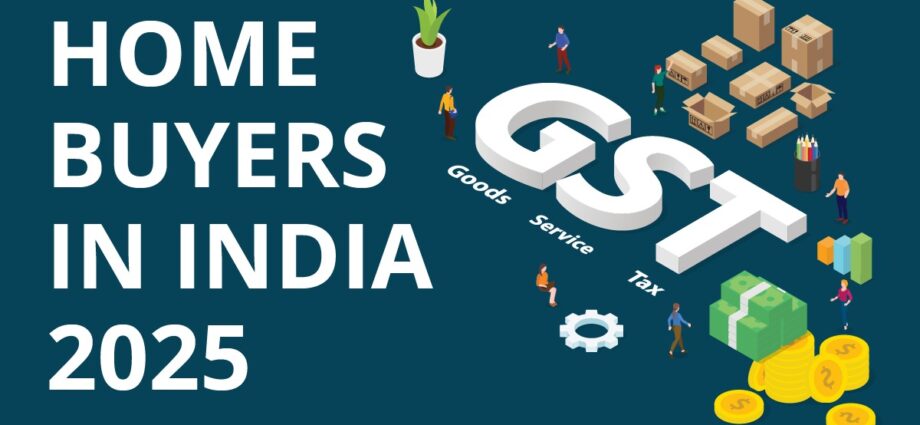Buying a home is a significant milestone, and understanding the taxes involved is essential. One of the most important taxes in India today is the Goods and Services Tax (GST), which applies to certain types of real estate transactions. Whether you’re purchasing your first apartment or investing in an under-construction property, knowing how GST for home works can help you make informed decisions.
In this article, we’ll break down the applicability of GST, current rates, exemptions, and how GST influences home buying costs.
What is GST for Home Purchase?
GST, introduced in 2017, streamlined India’s complex indirect tax system. It consolidated multiple taxes like VAT, service tax, and excise duty into a single framework. When it comes to real estate, GST for home specifically applies to under-construction properties and works contracts. However, not all residential property purchases attract GST—this depends on the stage of construction and the type of property.
When Does GST Apply on Home Purchases?
GST is only applicable in the following scenarios:
- Under-construction flats or housing units without an Occupancy Certificate (OC).
- Affordable housing projects (with specific conditions).
- Works contracts associated with construction.
GST Rates for Home Buyers (2025 Update)
As per the latest guidelines:
| Type of Property | GST Rate | Input Tax Credit (ITC) | GST Applicability |
| Affordable Housing | 1% | Not allowed | Yes, if under construction |
| Other Residential Properties | 5% | Not allowed | Yes, if under construction |
| Completed Property (OC) | 0% | Not applicable | No |
| Land Purchase | 0% | Not applicable | No |
Affordable housing is defined based on both carpet area and price:
- Carpet area ≤ 60 sq. m in metro cities or ≤ 90 sq. m in non-metros
- Cost of the unit should not exceed ₹45 lakh.
How GST Impacts Your Home Budget ?
Understanding how GST adds to your cost can help you plan better. Here’s how it affects you financially:
Example:
If you’re buying a flat worth ₹40 lakh under an affordable housing scheme, the GST would be:
- ₹40 lakh × 1% = ₹40,000
In contrast, a non-affordable flat worth ₹70 lakh would attract:
- ₹70 lakh × 5% = ₹3.5 lakh
This difference highlights why GST for home is a crucial factor in budget planning.
Exemptions from GST in Real Estate
Here are the scenarios where GST for home doesn’t apply:
- Resale flats: Since these are treated as a sale between individuals and not developers, GST is not applicable.
- Completed flats: Properties with a Completion or Occupancy Certificate are not liable for GST.
- Land purchase: Buying plots or standalone land is GST-exempt.
However, even in these exempt cases, buyers are still responsible for stamp duty and registration charges, which vary from state to state and typically range between 5% and 8%.
Additional GST on Maintenance and Amenities
While the property itself may or may not attract GST, charges for common area maintenance or club memberships can be GST-inclusive:
- Maintenance charges exceeding ₹7,500/month are taxed at 18% GST.
- Extra features like parking, electricity deposits, and preferential location charges (PLCs) may also attract GST if billed separately.
So, while calculating your final budget, these hidden GST components should also be accounted for.
Pros and Cons of GST in Home Buying
Pros:
- Transparent pricing structure.
- Uniform tax application across states.
- Simplified billing compared to previous tax regimes.
Cons:
- No Input Tax Credit (ITC) benefit passed to buyers.
- Higher cost on non-affordable properties.
- Limited benefit for those purchasing ready-to-move-in flats.
Key Tips for Buyers:
- Verify the OC Status: Ask the developer for the Occupancy Certificate to confirm if GST applies.
- Check Project Classification: Know whether your project falls under affordable or non-affordable housing.
- Ask for GST Breakup: Ensure your payment plan specifies the GST component separately.
- Compare Ready-to-Move Options: In many cases, these properties can be more cost-effective due to GST exemption.
Final Thoughts
Whether you’re an investor or first-time homebuyer, understanding GST for home purchases can save you thousands. It influences the total cost, impacts payment structure, and should be a major consideration when choosing between under-construction and ready-to-move-in properties.
If you’re planning to buy a property soon, factor in the GST component wisely, especially when calculating loan eligibility and total outlay. Stay updated with current GST rates and always consult your builder or financial advisor before making any commitments.
Is GST applicable on resale flats?
No. Resale or second-hand flats are exempt from GST.
Can I claim GST refund as a buyer?
Buyers cannot claim a refund. Input Tax Credit is not available to end consumers
Is GST applicable on land or plots?
No. Pure land sales are exempt from GST.
Are registration and stamp duty charges part of GST?
No. These are state-imposed charges and are separate from GST.


Comments are closed, but trackbacks and pingbacks are open.